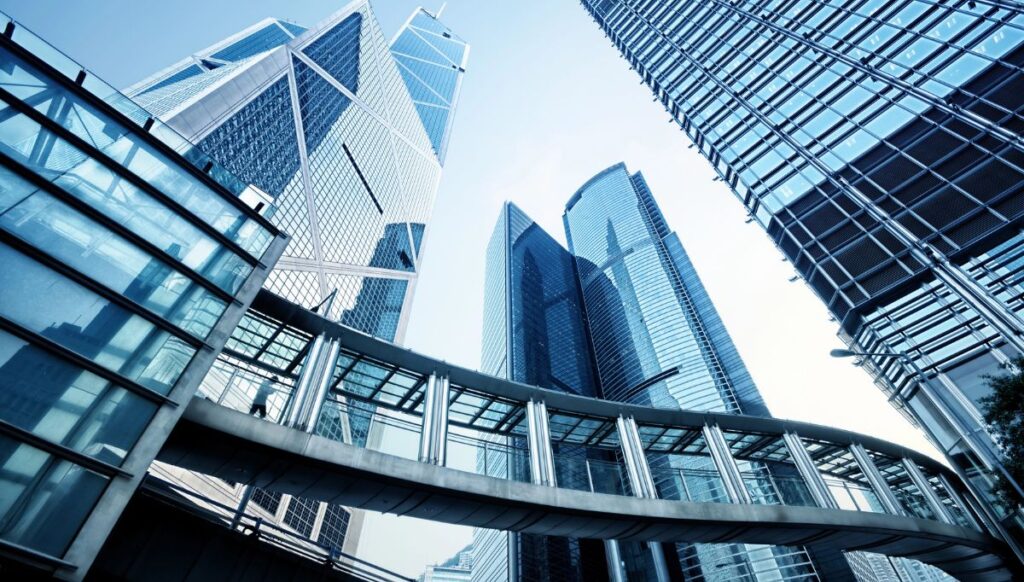Imagine strolling down a bustling city street, surrounded by towering architectural marvels, their facades gleaming in the sunlight.
While these structures captivate with their beauty, their exteriors play a pivotal role beyond aesthetics. They serve as protective shields, ensuring structural integrity, safety for passersby, and the preservation of a city’s unique charm.

There are many types of building facade products including timber, aluminum paneling, glass and steel screens to mention only a few. Each of these is attached to the building in a unique way which can also vary based on the various loads imposed on the building, climate and geographical considerations of the building’s context.
So why inspect a facade?
Building owners, developers and architects naturally want to add cutting edge new facade products to their buildings, be it for aesthetic reasons or climate control. Most of the time these are installed “in accordance with manufacturer specifications.”
Now we need to ask the question, what conditions do the manufacturers specification take into consideration? Does this product in its factory standard comply with the specific needs of my building?
This can be checked by a structural engineer conducting a facade inspection. This small step may be what stops a facade cladding panel from falling onto unsuspecting members of the public.
Building Facade:
The facade of a building is its first layer of protection against the forces that nature may impose on it. It acts as the windshield, sun-screen and thermal blanket, and is the first interface that the public has with your building.
These facades are becoming much more advanced and use complex mechanisms that require maintenance and upkeep in accordance with facade ordinance. It is worth your while to have a qualified structural engineer design and inspect these specialist facade systems to protect yourself from any future litigations and ensure your valuable building asset is well protected.
Facade Inspector:
A facade inspector, usually a licensed professional engineer or a licensed architect, plays a critical role in conducting thorough examinations of building exteriors.
These professionals possess the expertise to assess the condition, structural soundness, and safety of facades, ensuring compliance with specific requirements and regulations.
Big Buildings, Big Issues
Facade inspections in New York and San Francisco
In the bustling landscapes of cities like New York and San Francisco, the facade of a building serves as more than just an architectural statement; it’s a testament to engineering prowess and a shield against the elements.
However, the vulnerability of modern facade materials, particularly glass panels, underscores the need for diligent inspections and maintenance.
Imagine the impact of a piece of glass falling from a hundred-story skyscraper, hitting a car, or even worse a group of people.
This harrowing thought is why façade inspections are so critically important in larger and denser cities.
Building Facade Inspection:
Building facade inspection entails a comprehensive assessment of exterior walls, examining materials such as glass panels and cladding systems for signs of deterioration, damage, or unsafe conditions.
An inspection is typically conducted at five year intervals to ensure ongoing maintenance and public safety.
The inspection will look at all the fixings, resistance to the elements and any signs of structural fatigue in the structure that makes up the building envelope.
How to Obtain Facade Inspection Reports:
Following a facade inspection, an inspection report is generated outlining findings, recommendations, and any necessary remedial actions.
This report serves as tools for property owners, offering insights into the structural health of their buildings and guiding maintenance efforts to address potential risks. These reports can play a vital role in providing historic data should a building need changes down the road.
Why Facade Inspection Matter:
Facade inspection is not merely a routine maintenance task; it is crucial for ensuring public safety and preserving urban landscapes.
In cities like New York and San Francisco, the urban environment is densely populated, with buildings becoming taller and more technologically advanced.
In these landscapes, facade ordinance plays a vital role in upholding the structural integrity of these glass and metal towers, mitigating risks associated with aging buildings and evolving environmental factors.
Facade Ordinance:
Facade codes and regulations are laws passed by local authorities requiring the periodic inspection of certain building facades to help ensure public safety.
There are several local regulations in each city, regulating the need and frequency of facade inspections.
For example, in New York, facade inspection is governed by local laws, such as the Facade Ordinance, commonly known as Local Law 11.
These regulations mandate periodic inspections of building facades to identify and address any unsafe conditions, underscoring the importance of proactive maintenance in densely populated urban environments.
Challenges and Innovations:
The dynamic nature of urban landscapes poses unique challenges for facade inspections. Innovations in wind modeling and facade engineering are constantly evolving to address these challenges, ensuring buildings remain resilient in the face of environmental pressures and architectural advancements.
Conclusion:
Facade inspections are an indispensable aspect of building maintenance and safety, particularly in densely populated urban environments.
By prioritizing regular inspections and proactive maintenance efforts, property owners can uphold structural integrity, ensure public safety, and preserve the architectural heritage of our cities.
As cities continue to evolve, embracing innovative solutions and adhering to regulatory requirements will be paramount in safeguarding urban landscapes for generations to come.
We’re Here to Help
Ensure the safety and longevity of your building facades. Contact a licensed professional engineer or registered architect today to schedule a comprehensive facade inspection.